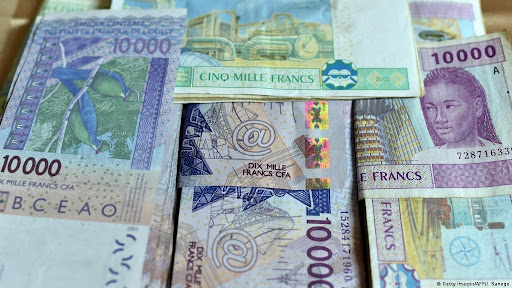
West Africa’s long-time dream of a single currency is far from realization as the region’s leaders have again extended the deadline for its anticipated launch.
The currency, dubbed the Echo, was expected to be launched this year, after repeated postponements. The new target date is 2027, according to the latest decision taken by leaders at the just concluded 59th Ordinary Summit of Heads of State and Government of the Economic Community of West African States (ECOWAS).
ECOWAS Commission President, Jean-Claude Kassi Brou, told reporters in Accra, Ghana, where the summit was held, that the ongoing Covid-19 pandemic had caused the latest delay.
“Due to the shock of the pandemic, the heads of state had decided to suspend the implementation of the convergence pact in 2020-2021,” said Mr Brou at a press conference after the heads of state summit on Saturday.
“We have a new road map and a new convergence pact that will cover the period between 2022-2026, and 2027 being the launch of the Eco,” he added.
Monetary integration is one of the main objectives of the regional integration programme of ECOWAS, a 15-member bloc established in 1975.
The idea of the Echo was first floated in 2003, with the goal of boosting cross-border trade and economic development, the founding objective of the bloc.
Plans to launch the currency was postponed on three occasions, first in 2005, then in 2010, and then in 2014.
Among the factors blamed for the delay include the inability of some of the member states with weaker economies to meet the economic parameters set by the bloc to pave way for the launch. But also the constant political instability in the region has left some countries like Mali unable to meet these conditions due to leadership vacuum caused by incessant coups and unrests.
Specifically, key issues that are holding back the realization of the plan include the exchange rate regime, momentary policy framework with a focus on addressing inflation and the model of the future ECOWAS Central Bank and its location.
But some critics have also accused Nigeria and Ivory Coast, the two major economic power houses in the region, of dragging their feet on the issue.
While Nigeria, the leading funder of ECOWAS, is concerned about the impact of abandoning its currency the Naira, among other local political considerations, Ivory Coast and the other French speaking member countries in the region are wary of the influence of Nigeria and how this will impact their own economies.
In 2019, this concern by the French speaking members was brough to the fore when the eight member West African Economic and Monetary Union, known by its French acronym UEMOA, sought to change its single currency, the CFA franc, to the Echo. The CFA franc is pegged to the euro, backed by France.
That proposal by Ivory Coast’s President Alassane Ouattara was seen as a betrayal of the larger dream by the English speaking ECOWAS member countries and Guinea, the only French speaking ECOWAS nation that is not part of the CFA franc.
The Echo was just one of about a dozen items on the agenda of the heads of states and government at the Accra Summit which was attended by 14 of the 15 member countries, with the exception of Mali which is under suspension due to a military coup that angered the regional leaders and the international community. Despite citing “positive development” in the performance of the transition government, the summit failed to lift the suspension of Bamako.
Thirteen of the delegates were heads of state, with only the Senegalese President Macky Sall represented by his Foreign Minister.
Among others, the leaders also discussed the Covid-19 situation in the region, African Continental Free Trade Area, and a proposed mechanism for the rotation of member states’ candidatures to the chairmanship of the African Union.



















